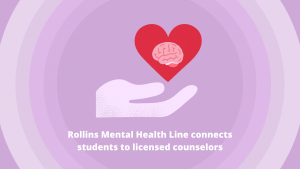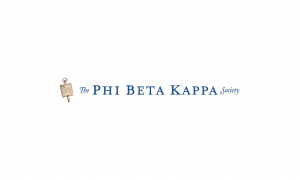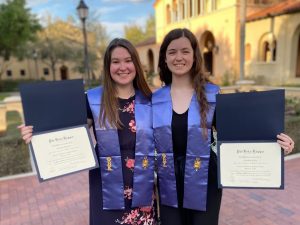
Rollins’ general education has undergone major changes after a student survey on the neighborhood system received 40 percent negative feedback.
After students voiced concerns about limited course selection, there is now an “open borders” policy that allows students to take multiple courses outside of their theme.
The new system is called rFLA 2.0, and also includes a new “ethical reasoning” competency and an option for students to fulfill one of their requirements with a non-rFLA course.
The five new themes that make up rFLA 2.0 are Innovation, Environments, Identity, Enduring Questions, and Cultural Collision.
Like the previous program, rFLA 2.0 requires students to take one 100 level course, three 200 level courses, and one 300 level capstone course. The difference now, though, is that students can fulfill these requirements with any class from the new themes.
“New students will now chart their own path through these themes, focusing on a single question that they’re passionate about… or exploring how different disciplines and approaches can be combined to solve problems,” said Emily Russell, associate dean of curriculum.
For example, a student interested in climate change might take classes in the Innovation and Environments themes.
Students will have the option to substitute one of their required 200-level courses with an approved course outside of the rFLA program, allowing them to customize their liberal arts experience.
For upperclassmen students, the revisions to the rFLA program allow them to fulfill their remaining requirements with any course from the new themes.
“Students interested in taking that option can opt into the new catalog requirements,” Russell said.
This means that continuing students interested in substituting one of their 200 level rFLA requirements with a non-rFLA course option must also fulfill an ethical reasoning requirement before they graduate. This was added with the goal of restoring an original intention of the rFLA program.
Russell said that ethical reasoning was a goal built into the original rFLA program, but it was suspended last year as faculty tried to determine how to best deliver this skill to students.
Surveys conducted by the Association of American Colleges and Universities have found that employers rank ethical judgment as one of the most valuable skills for an employee to posses.
In addition, the survey reported that employers also place a high priority on proficiency in skills and knowledge across multiple majors, so the new system is designed to help students cultivate these skills.
The flexibility of rFLA 2.0 has already positively impacted some students’ lives.
Tori Whalen (‘19) struggled to find a 300-level capstone that was of interest to her and within her neighborhood. She did find a course for this fall semester, but it filled up before she had the opportunity to enroll, leaving her to put off fulfilling this requirement until the spring of her senior year.
With the changes to rFLA, Whalen is now confident that she will be able to find the class she needs and wants to take.
Some students, however, still prefer the old neighborhood system.
Tianna Rosser (‘19) said that, while she “recognizes these changes will be good for students,” she will “miss the old neighborhood system.” Rosser also said she “enjoyed the themed classes” within her neighborhood, When Cultures Collide.
She said that because of her education, she is now “able to connect with people on a deeper level.”
The revisions to the rFLA program were inspired by feedback from students. “We worked with the SGA exec board, student reps to curriculum committee, and an SGA campus forum, along with a campus-wide survey to gather student feedback,” Russell said.
Students expressed similar opinions during SGA’s open forums. However, current SGA president, Nagina Chaudhry (‘19), said that many of these open forums lacked student attendance and thus did not allow for SGA to receive proper feedback.
“I really want to see more attendance at these open forums so that information/news is transparent, and professors, students, and administration are all on the same page,” said Chaudhry.
“This semester we are planning on holding another open forum with all professors involved in the curriculum committee, and I would really love to see more student participation,” she said.
“While this is a small step, there are still many improvements to be made in the neighborhood system.”
“SGA officers are constantly meeting with the curriculum committee and pitching ideas so that in the end we have something which is best for all students.”














Be First to Comment